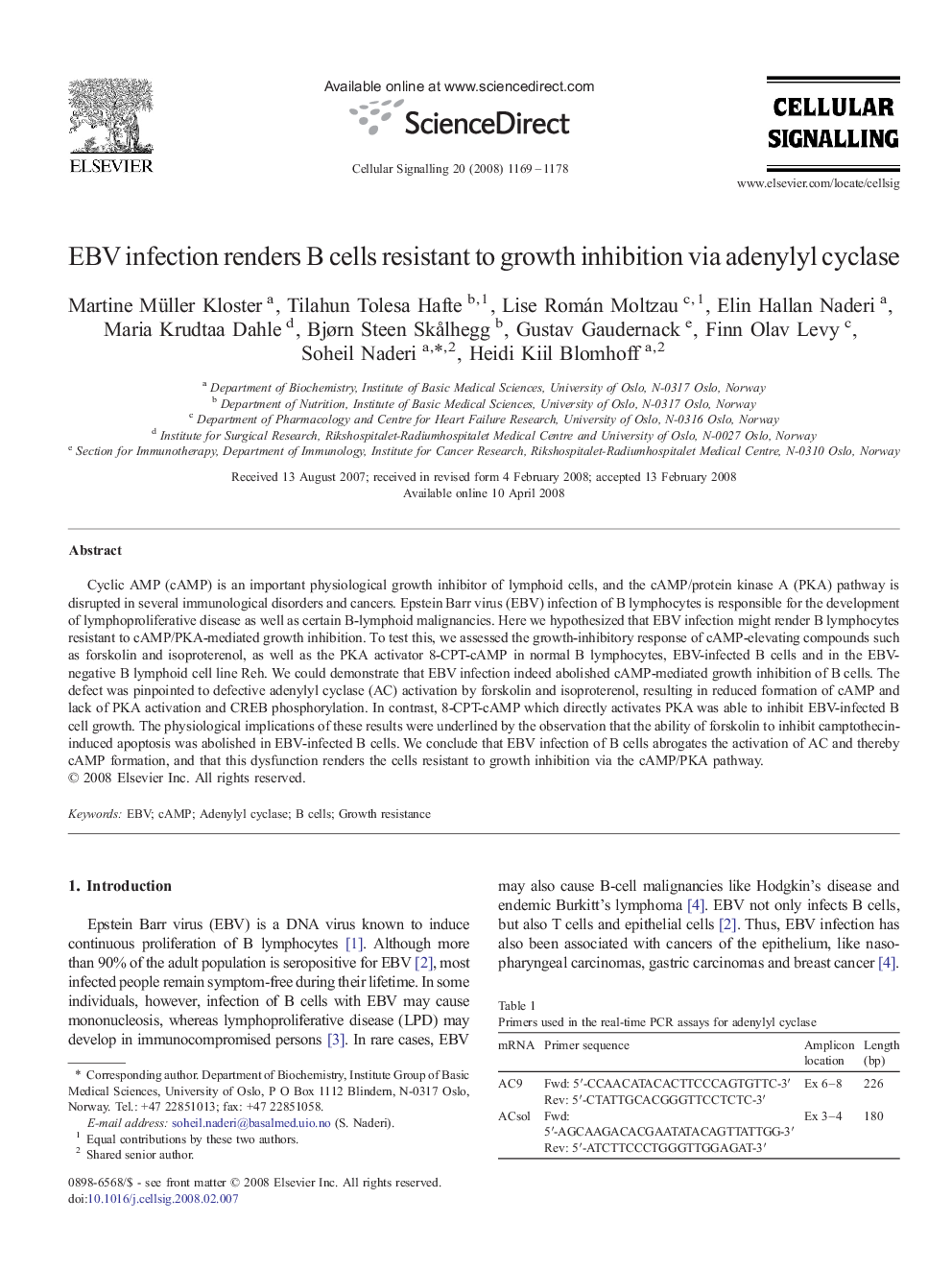| Article ID | Journal | Published Year | Pages | File Type |
|---|---|---|---|---|
| 1964886 | Cellular Signalling | 2008 | 10 Pages |
Cyclic AMP (cAMP) is an important physiological growth inhibitor of lymphoid cells, and the cAMP/protein kinase A (PKA) pathway is disrupted in several immunological disorders and cancers. Epstein Barr virus (EBV) infection of B lymphocytes is responsible for the development of lymphoproliferative disease as well as certain B-lymphoid malignancies. Here we hypothesized that EBV infection might render B lymphocytes resistant to cAMP/PKA-mediated growth inhibition. To test this, we assessed the growth-inhibitory response of cAMP-elevating compounds such as forskolin and isoproterenol, as well as the PKA activator 8-CPT-cAMP in normal B lymphocytes, EBV-infected B cells and in the EBV-negative B lymphoid cell line Reh. We could demonstrate that EBV infection indeed abolished cAMP-mediated growth inhibition of B cells. The defect was pinpointed to defective adenylyl cyclase (AC) activation by forskolin and isoproterenol, resulting in reduced formation of cAMP and lack of PKA activation and CREB phosphorylation. In contrast, 8-CPT-cAMP which directly activates PKA was able to inhibit EBV-infected B cell growth. The physiological implications of these results were underlined by the observation that the ability of forskolin to inhibit camptothecin-induced apoptosis was abolished in EBV-infected B cells. We conclude that EBV infection of B cells abrogates the activation of AC and thereby cAMP formation, and that this dysfunction renders the cells resistant to growth inhibition via the cAMP/PKA pathway.
